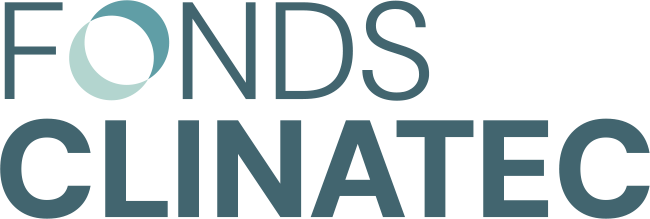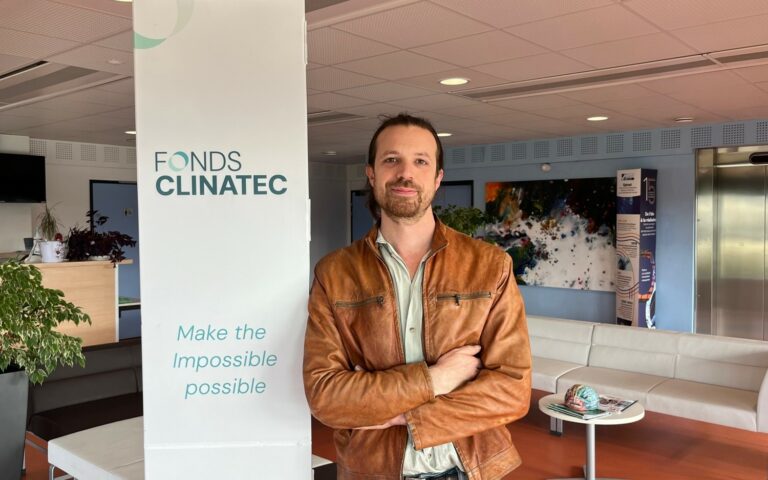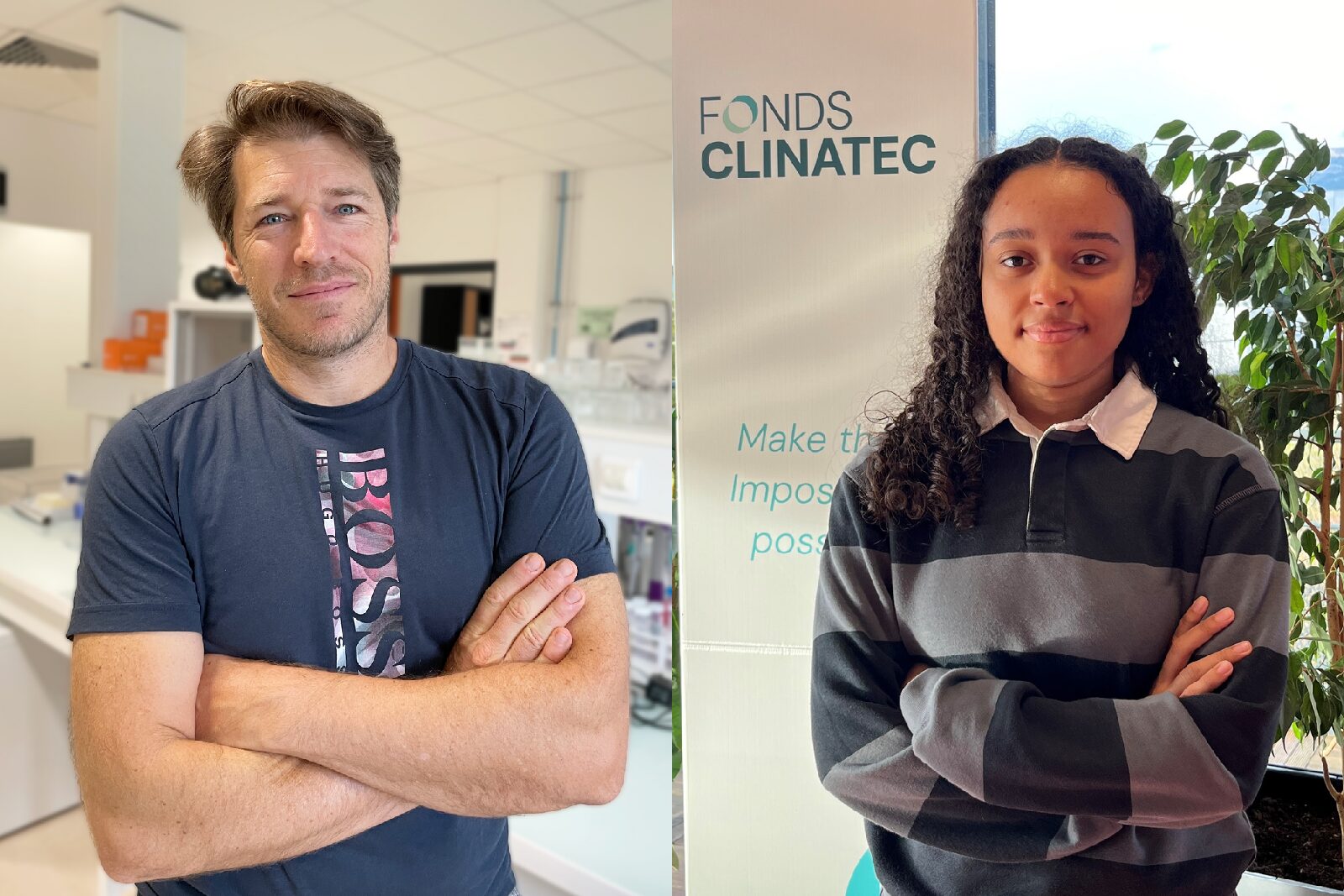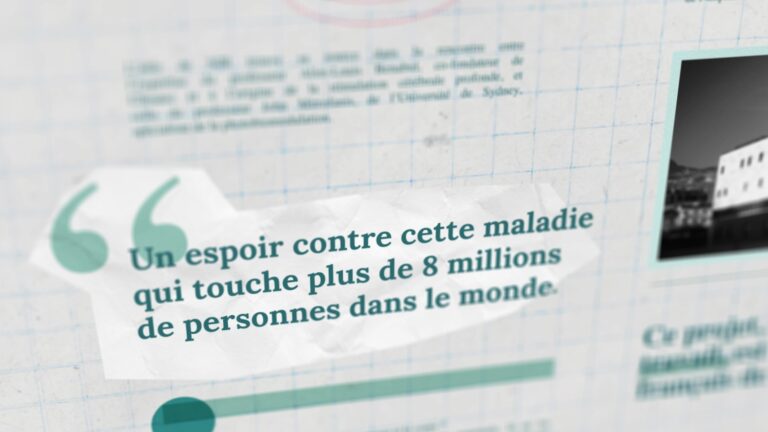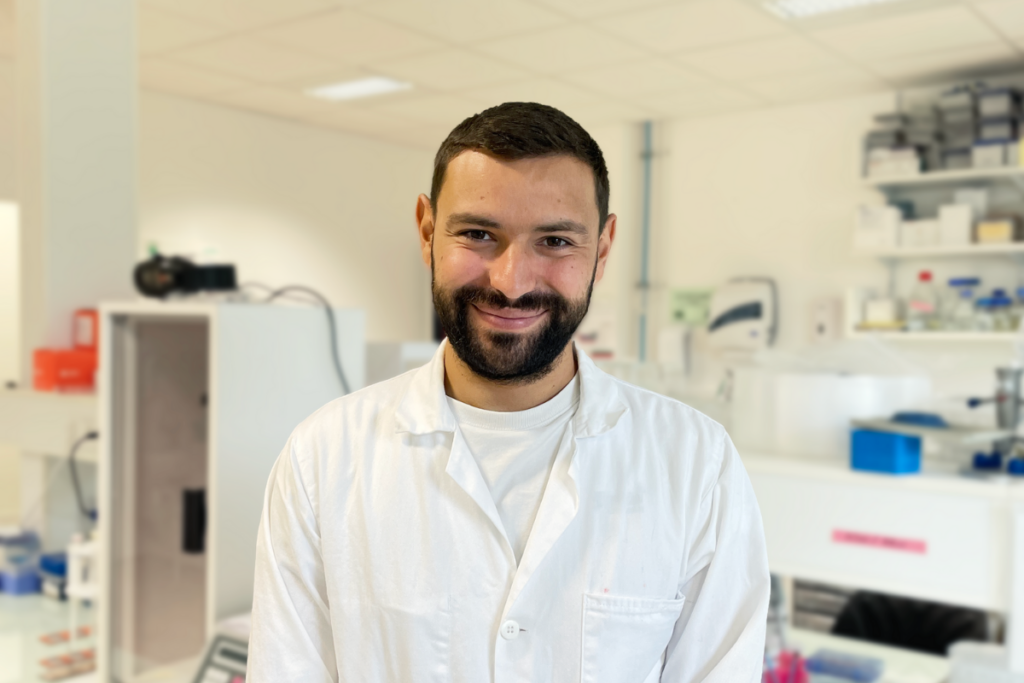
‘The real challenge is to translate these scientific advances into practical, accessible solutions for all those who need them, thereby helping to lighten the burden of neurodegenerative diseases on our society’.
Hello Romain,
What’s your background? How did you come to work at Clinatec? and what project are you working on?
‘After obtaining a scientific baccalauréat, I began my university career with a degree in health biotechnology at the University of Grenoble Alpes. I then went on to do a master’s degree in health engineering, specialising in biomedical diagnostics, at the University of Clermont Auvergne, where I acquired knowledge and skills in the major areas of biology applied to human diseases.
My career path began as soon as I started my studies, during my work-linked Master’s degree. I worked in a research team at the IMoST laboratory (in Clermont-Ferrand) on a project to develop diagnostic tools for screening cancer drugs. Following this work placement, and during the COVID-19 crisis, I worked at the Institute of Biology and Pathology at Grenoble University Hospital. I took part in managing the health crisis by carrying out biological analyses to screen for COVID-19 and variants. I then joined the Grenoble Institute of Neuroscience (GIN) as a research engineer. I worked on a project funded by the AFM Téléthon to develop a new gene therapy strategy for Leigh syndrome.
As a result of my previous professional experience, I discovered a passion for neuroscience and neurodegenerative diseases, and a strong desire to play a part in improving the way these diseases are treated. So I wanted to get more involved in translational research, where scientific discoveries can be rapidly applied to improve patients’ lives. Joining Clinatec was an obvious choice, because it’s a research centre renowned for its innovation and commitment to the fight against neurodegenerative diseases. The opportunity to work on cutting-edge projects alongside a multidisciplinary team was a powerful motivation for me to join the Fonds Clinatec team and contribute to scientific advances that will have a tangible impact on society.
I’m involved in several research projects at Clinatec, including BioPhotons, AmodAlz, Estime and PatchLight. These projects share a common objective: to explore and develop new therapeutic approaches for neurodegenerative diseases, in particular through the study of interactions between near-infrared light and brain cells or electrostimulation. My role is to provide technical support for the various projects and make an effective contribution to scientific advances. In the longer term, I hope that my work will help pave the way for clinical innovations that will improve patient care.
The projects I’m working on have the potential to improve the way we understand, diagnose and treat neurodegenerative diseases. By exploring innovative approaches, we hope not only to identify new early biomarkers and new therapeutic targets, but also to offer prospects for non-invasive treatments that could considerably improve patients’ quality of life. The real challenge is to translate these scientific advances into practical, accessible solutions for all those who need them, thereby helping to ease the burden of neurodegenerative diseases on our society.
The Fonds Clinatec provides a stimulating and collaborative working environment, with access to cutting-edge resources and technologies. Working alongside experienced researchers and professionals in the neurosciences, as well as in cross-disciplinary fields, will enable me to develop and flourish by taking part in innovative projects with a direct impact on patients.’
Welcome to our team, Romain!
